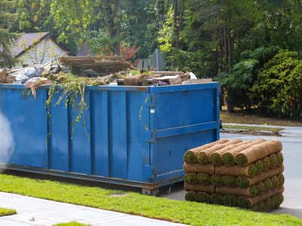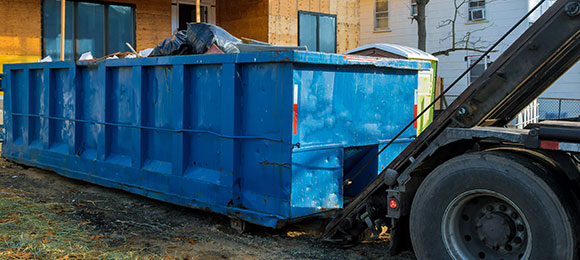The Environmental and Health Effects of Waste Management in California
As the most populous state in the United States, California faces significant challenges in waste management. With a diverse range of industries, a large population, and a high standard of living, the state generates a massive amount of waste that requires proper handling and disposal. However, the environmental and health effects associated with waste management practices in California raise concerns. This article delves into the impacts of waste management on the environment and public health in California and explores the efforts being made to mitigate these effects.
Landfill Pollution
Landfills are a common waste disposal method in California, and their operation and maintenance pose environmental risks. Organic waste decomposing in landfills may produce excess methane, a potent greenhouse gas that contributes dramatically to climate change. Methane emissions from landfills not only exacerbate global warming but also contribute to local air pollution. Landfills do release a lot of harmful gases, so-called volatile organic compounds (VOCs), and particulate matter into the atmosphere, which affects air quality in the surrounding communities. Such pollutants might lead to respiratory problems in local Californian residents, or cardiovascular issues, and many other adverse health effects.
Groundwater Contamination
Improper waste management practices, including the disposal of hazardous waste, pose a significant risk of groundwater contamination in California. Landfills, especially older or poorly maintained ones, may not have adequate liners or leachate collection systems, allowing harmful substances to seep into the groundwater. This contamination can persist for years, posing a threat to drinking water supplies and ecosystems. Additionally, agricultural runoff and the improper disposal of chemicals and pharmaceuticals can further contribute to groundwater pollution, affecting both human health and the environment.
Electronic Waste
The rapid advancement of technology has led to a significant increase in electronic waste, or e-waste, which requires special handling due to its toxic components. California is at the forefront of addressing e-waste issues through legislation such as the Electronic Waste Recycling Act. However, improper disposal and recycling of electronic devices still occur, leading to environmental and health concerns. Such e-waste materials often contains dangerous hazardous materials such as lead, mercury, cadmium, and brominated flame retardants. If these materials are not properly managed, they may contaminate soil, water, and air, posing risks to ecosystems and pose a risk to human health.
Recycling and Resource Recovery
Recycling and resource recovery play a crucial role in waste management and reducing the environmental impact of waste in California. Efforts to promote recycling have been made through statewide programs such as the California Beverage Container Recycling and Litter Reduction Act, which incentivizes the recycling of beverage containers. Recycling helps conserve natural resources, reduce energy consumption, and minimize the need for landfill space. However, challenges exist, including limited recycling infrastructure, contamination of recyclables, and insufficient education and awareness about recycling practices.
Health Impacts on Waste Workers
Waste management workers are on the front lines of handling and managing waste in California. They face unique health risks associated with their occupation. Waste workers may be exposed to hazardous substances, biohazards, and physical hazards, such as injuries from handling heavy objects or exposure to sharp objects. Proper training, personal protective equipment, and workplace safety measures are essential to protect the health and well-being of waste workers. Additionally, their exposure to air pollution and dust during waste collection and disposal activities can contribute to respiratory issues and other health problems.
Waste-to-Energy and Innovative Solutions
California has been exploring waste-to-energy technologies and innovative solutions to minimize waste disposal and utilize waste as a resource. Waste-to-energy facilities convert waste into electricity or heat through processes like incineration or anaerobic digestion. These technologies can help reduce landfill reliance, produce renewable energy, and recover valuable resources. However, it is crucial to ensure that these facilities operate within strict environmental standards to prevent the release of harmful emissions and protect public health.
Legislative Measures and Sustainable Practices
To address the environmental and health effects of waste management, California has implemented legislative measures and sustainable practices. The state has enacted regulations to reduce landfill methane emissions and promote recycling and composting. Additionally, California aims to achieve its ambitious goal of 75% recycling, composting, or source reduction by 2025, known as the California Recycling and Plastic Pollution Reduction Act. The state has also taken steps to phase out single-use plastics, promote sustainable packaging, and encourage the use of recycled materials in product manufacturing.
The environmental and health effects of waste management in California highlight the need for sustainable practices, innovative solutions, and continued efforts to protect both the environment and public health. Through increased recycling, responsible waste disposal, improved landfill management, and the adoption of cleaner technologies, California can minimize its waste footprint and mitigate the adverse impacts associated with waste management. By prioritizing the reduction, reuse, and recycling of waste, the state can move towards a more sustainable and healthier future for its residents and the environment.
Sustainability initiatives by the city of Fresno, CA
The city of Fresno, California, has undertaken several sustainability initiatives to promote a greener and more environmentally conscious community. One significant initiative is the Fresno Green Program, which focuses on energy efficiency and conservation. Through this program, the city provides resources and incentives to residents and businesses for adopting sustainable practices. It includes energy audits, rebates for energy-efficient appliances and upgrades, and educational outreach to promote energy conservation. By encouraging energy efficiency, Fresno aims to reduce greenhouse gas emissions, conserve resources, and lower energy costs for its residents and businesses.
Another notable sustainability initiative in Fresno is the promotion of water conservation. As California experiences frequent droughts, water conservation is a top priority for the city. Fresno offers various programs and incentives to encourage residents and businesses to conserve water. These initiatives include rebates for water-efficient appliances, irrigation upgrades, and landscaping programs that promote water-wise gardening and native plant use. By prioritizing water conservation, Fresno strives to ensure the availability of water resources for future generations and build a resilient and sustainable community in the face of changing climatic conditions.



